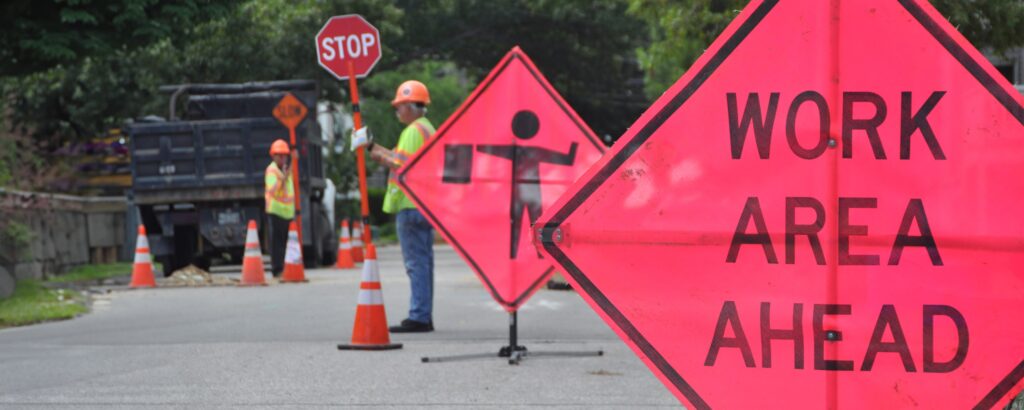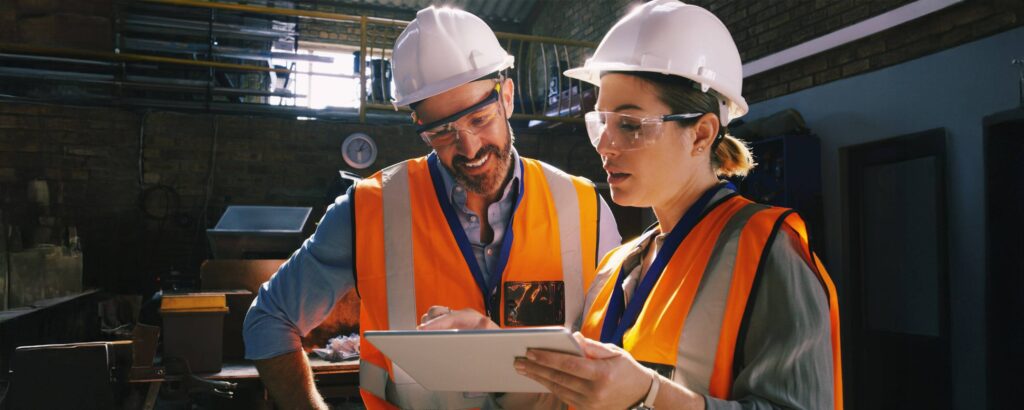When people think of safety in construction, they typically picture scenarios where workers could be injured, like from falls, slips, trips and equipment misuse and malfunction. But being safe in construction also includes paying attention to mental health. An employee who is anxious, stressed or depressed can experience distraction on the job, leading to accidents. But mental health risks are more serious than lost productivity.
More construction workers die by suicide each year than every other workplace-fatality combined. In 2020, there were 14.2 thousand overdose and 5.5 thousand suicide deaths among construction workers. By contrast, nearly half of the 4,764 workers who died on the job in 2020 were in construction, transportation and material moving and extraction occupations, according to OSHA. The industry is addressing construction’s mental health issue.
In June 2022, AGC of America established a Mental Health & Suicide Prevention Task Force comprised of professionals from across the country. The task force hosts quarterly forums to discuss best practices, engage with industry partners and legislators and conduct needs analyses to develop a comprehensive collection of resources for construction companies and their workers. The first step to bring awareness to mental health issues is to identify the risk factors.
Mental Health and Construction
The physical aspects of construction work itself can put a strain on a workers’ mental health. Construction can often involve:
- Long workdays
- Difficult, tiring labor
- Harsh environmental conditions
- Pain from injury or overuse
In fact, injury and chronic pain, common in construction work, can actually contribute to employees’ anxiety, stress and depression.
There are also non-physical risk factors to mental health issues in construction including:
- Low social image of the construction industry
- Barriers to adequate medical health care and behavioral health services
- End-of-project furloughs and seasonal layoffs
- Worker lifestyle choices with respect to nutrition, exercise, alcohol and substance abuse
While the nature of construction work may not change, how employers help employees deal with the strain can. Employers can make a plan to identify and act when risk factors are present.
Identify Risk Factors
Some common warning signs in adults that companies can be aware of:
- Excessive worrying or fear
- Feeling excessively sad or low
- Confused thinking or problems concentrating and learning
- Extreme mood changes, including uncontrollable “highs” or feelings of euphoria
- Prolonged or strong feelings of irritability or anger
- Avoiding friends and social activities
- Difficulties understanding or relating to other people
- Feeling tired and low energy
- Changes in eating habits such as increased hunger or lack of appetite
- Difficulty perceiving reality (delusions or hallucinations, in which a person experiences and senses things that don’t exist in objective reality)
- Inability to perceive changes in one’s own feelings, behavior or personality (“lack of insight” or anosognosia)
- Overuse of substances like alcohol or drugs
- Multiple physical ailments without obvious causes (such as headaches, stomach aches, vague and ongoing “aches and pains”)
- Thinking about suicide
- Inability to carry out daily activities or handle daily problems and stress
- An intense fear of weight gain or concern with appearance
Identifying the risk factors for mental health issues can help counteract the biggest obstacle to getting mental health treatment, the stigma associated with getting help. Construction employers need to take stock of the mental health benefits they offer and let employees know they are available and how to access them.
5 Ways to Deal with Stress or Anxiety
Aside from recognizing the mental health and suicide risks in construction, you can help your workers be more proactive about dealing with stress and anxiety on the job. Construction Executive shares five ways workers can deal with stress or anxiety.
- Share or Journal. Share with at least one person what’s really going and how you are feeling or write your feelings down. Research shows talking about feelings lowers their intensity and validates that what you’re experiencing is real. And sharing your feelings helps you stay in the present and be better supported and understood.
- Exercise. Even though construction jobs are physical, exercise is still important. Exercise reduces the levels of the body’s stress hormones, such as adrenaline and cortisol. Plus, it stimulates the production of endorphins, chemicals in the brain that are the body’s natural painkillers and mood elevators.
- Read Positive Material. Reading books benefits both your physical and mental health, and those benefits can last a lifetime, according to Healthline. One study found just 30 minutes of reading lowered blood pressure, heart rate and feelings of psychological distress as effectively as yoga.
- Acts of Kindness. Everyday simple acts of kindness can contribute to boosting mood, reducing stress and possibly alleviating symptoms of depression or anxiety, according to the American Psychiatric Association. Acts of kindness include opening doors for others, texting someone a positive message, donating blood, leaving an extra big tip and celebrating someone else’s accomplishment.
- Ask For Help. Asking for help is part of developing a strong social support network which can be a proactive factor when dealing with difficulties, according to the America Psychological Association. Those lacking a strong social network can start by turning to places of worship, senior and community centers, local libraries, refugee and immigrant groups, neighborhood health clinics and local branches of national organizations such as Catholic Charities or the YMCA/YWCA.
Support for mental health issues is available from the National Construction Safety Week. Download the Mental Health Field Guide to get started.


